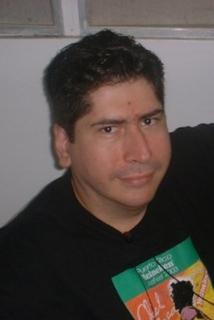Democracy for Puerto Rico, Equality for Latinos
 September 29, 2006
September 29, 2006Commentary:
Democracy for Puerto Rico, Equality for Latinos
By Jeffrey F. Farrow, Diario La Prensa, San Diego
Democracy for Puerto Rico, Equality for Latinos
By Jeffrey F. Farrow, Diario La Prensa, San Diego
On one level, the current immigration debate is about law enforcement. The underlying issue, however, concerns a major change in the make-up of the U.S. population. The change is empowering millions of people of Latin American origin, and altering American society and politics. The question posed by the issue is whether Latinos can gain full equality and acceptance in the United States.
The potential of a fully democratic form of government for the Hispanic U.S. territory of Puerto Rico is a clear test case of this acceptance.
In 1898, U.S. troops landed on what was then the Spanish territory of Puerto Rico. The flag of history’s greatest champion of democracy has flown over the islands ever since.
Puerto Ricans have been granted U.S. citizenship since 1917 (when, during World War I, they also began to be drafted into the U.S. military). But the territory’s ultimate political destiny — whether it will become a U.S. State or a nation — has never been determined.
Hispanic Heritage Month is an appropriate time for all Latinos to question why the 3.9 million Hispanic U.S. citizens of Puerto Rico still do not enjoy democracy at the national government level, with no votes in the Congress that makes their national laws and no vote for the President.
Last December, a task force established by President Clinton, but made up of appointees of President Bush, recommended a process for determining the islands’ future: Congress would first provide for a vote on whether Puerto Ricans want to replace the current territory status. If they do not, a vote would be held periodically. If and when they vote to seek a fully democratic status, Congress would provide for a vote on whether to seek statehood or nationhood — possibly in a free association with the U.S. Earlier this year, fifteen U.S. senators led by Mel Martinez (R-FL) and Ken Salazar (D-CO) sponsored a bill for the first vote. Puerto Rico’s lone, non-voting representative, Luis Fortuno (R), Jose Serrano (D-NY), and 108 others in the House sponsored a bill for the entire process. The bills have the support of the territory’s legislature and leaders who represent a majority of the electorate.
Congress is only holding hearings on the task force report this year but will be asked again to act on the bills next year.
When Congress last considered the issue — in 1998, some Republican conservatives opposed establishing a process to resolve it because of the fear that Puerto Ricans would choose statehood, resulting in a Hispanic State with two Latino U.S. senators, six Latino representatives in the House, and eight Latino electoral votes.
The opponents make the stakes clear for all Latinos: Opposition to a Puerto Rican status choice because of the possibility of a State populated primarily by Hispanic U.S. citizens is opposition to full equality for Latinos.
And if Puerto Ricans choose statehood, Latino political power in the country will be greatly increased.
In addition to congressional inaction, there’s a local complication. A political minority headed by the current governor wants another option, an unprecedented “Developed Commonwealth” proposal. Under it, Puerto Rico would supposedly be able to nullify most federal laws and enter into international trade and other agreements States cannot. The federal government would be required to grant an additional subsidy for the local government and new tax breaks for companies from the States as well as to continue all current aid to Puerto Ricans, totally free trade, and citizenship.
Despite the fact that the Clinton Administration and the Bush Task Force determined this proposal to be impossible for constitutional and other reasons, the governor has gotten Sen. Richard Burr (R-NC) and Rep. John Duncan (R-TN) and some others in Congress to sponsor a bill that includes it. Congress will not pass that bill because it cannot agree to the “Developed Commonwealth” proposal that conflicts with the U.S. Constitution.
But it would be wrong for Congress to use the excuse of an impossible proposal of a minority in Puerto Rico to not pass any bill to establish a process to enable Puerto Ricans to finally obtain a fully democratic form of government based upon their choice among all the possible options. Congress has a responsibility to enable full democracy for Puerto Ricans, demonstrating its willingness to fully accept Latinos as equal citizens.
Jeffrey F. Farrow is Co-Chair, the President Interagency Group on Puerto Rico 1994-2001, and Staff Director, U.S. House of Representatives Subcommittee on Insular Affairs, 1982-94.



0 Comments:
Publicar un comentario
<< Home